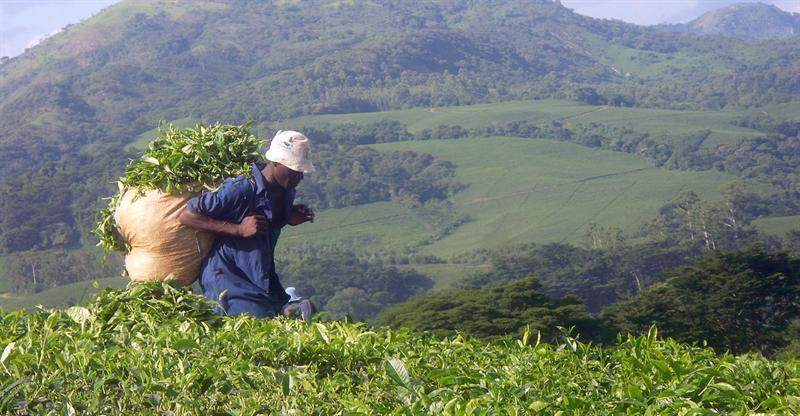SLHTA planning to provide multi-million dollar opportunities to Agricultural industry
SLHTA planning to provide multi-million dollar opportunities to Agricultural industry
From the moment of his appointment as President of the SLHTA, Sanovnik Destang has expressed a keen interest in improving the relationship between tourism and agriculture from one of coexistence to symbiosis.
 In a CARICOM report on St Lucia’s Agricultural sector the organization noted that, “Agriculture continues to be a critical sector for St Lucia although its contribution to GDP has been steadily declining over the last 10 years. The sector contributed approximately 3.1% to GDP in 2014.
In a CARICOM report on St Lucia’s Agricultural sector the organization noted that, “Agriculture continues to be a critical sector for St Lucia although its contribution to GDP has been steadily declining over the last 10 years. The sector contributed approximately 3.1% to GDP in 2014.
The country is a net-food importing country, with a growing trade deficit in its food bill over the last 10 years”.
With approximately one-third of all visitor expenditure spent on food, creating linkages between tourism and agriculture holds great potential as a mechanism for sustainable development at the community level. It can therefore not be overstated the critical role that the food and beverage sector plays in the tourism industry’s growth. A recent Tripadviser barometer study found that more than 60% of guests are likely to expand their palate when they come on vacation, proving that placing local products on a menu can be quite beneficial to restaurants and hotels. Referencing Bay Gardens Resorts, the award winning hotel SLHTA President Sanovnik Destang manages, he noted that, “when we introduced our farm to table menu it allowed us to see an increase of 10 to 20% in revenue.”
It is from this observation and the expressed needs and desires of many local farmers, that the Association plans to focus on strengthening the relationship between the two industries. “I am aware that for many years there has been much talk of the need for linkages as the tourism industry continues to blossom while for agriculture has in many ways stagnated and it is because of this knowledge that I have made this area a priority for my tenure” Destang commented.
Through several initiatives, the Association has already helped many local farmers network and build partnerships with hoteliers. Last year, the SLHTA held an Agricultural Symposium in an effort to dialogue with local producers and suppliers on their current concerns and how the SLHTA could assist in improving the industry. A second symposium was held with hoteliers and restaurateurs to identify prospective opportunities for partnerships with local producers.
Destang explained that through these symposiums the hope is to bridge the gap between the two sectors by increasing information sharing among all parties. Finally, an attempt has been made to reduce farmers waiting times for payment for produce sold to hotels.
Many hotels have taken the initiative to greatly reduce their timeframes for payment to farmers from one to two weeks. Additionally, through the development of the SLDB’s Express Payment Service financing mechanism it allows farmers selling to hotels to be paid in 24 hours.
Destang, as part of his key objectives for his tenure as President is committed to building the agriculture sector and is indeed excited to see these plans come into fruition. Coming out of discussions with industry leaders, the SLHTA has identified a multimillion dollar opportunity for the local farming sector.
Recently, Destang along with other stakeholders identified a hotel which has been importing $1.3 million a year in 9 different crops that can be grown locally. It is now known that with this property there is a demand for 100,000 pounds of pineapples that the hotel would be open to purchasing locally; this alone would amount to $350,000 annually. Following discussions, this hotel would be excited to purchase these crops locally.
“We are excited to pursue this opportunity and many more,” Destang shared. This opportunity alone would be a much needed revenue injection into a much beleaguered industry.
There is much possibility to grow the agricultural industry through linkages with tourism. Investigations have revealed that St Lucia is importing $10 – $15 million crops that can be grown locally and bought at a lower price than when imported. Although many restaurants and hotels have already formed solid partnerships with local suppliers, there remains much work to be done.
To assist with building these alliances, the Association recently conducted interviews for an Agricultural Liaison Officer who will intimately work with stakeholders in both industries in an effort to further close the gap between the two sectors. The Association also hopes that through the work of this Officer, they will be able to develop a small pilot program involving local producers that could result in increased revenues and profitability for small scale farmers by helping them diversify from low value commodities to high-value specialty products which would be sold to hotels and restaurants on island.
Through these farmers, the hope is that it will become a guide for what can positively occur when the two industries work together. Destang added that “our hope is to get new and younger farmers to expand their farming and provide them with the financing that they need to hopefully get them started with producing on a larger scale”.
The need to grow the agricultural sector through partnership with the tourism industry falls perfectly in line with the ethos of a sustainable development model for economic growth. Though there are many challenges that will remain, including meeting supply and production demands as well as assisting local farmers in creating a sustainably viable business, this venture is certainly a step in the right direction.
Recent Posts
Tags




